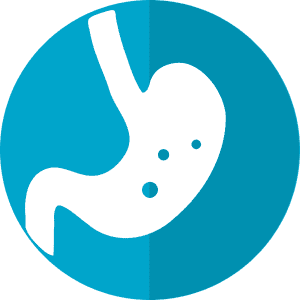The FDA has recently granted Orphan Drug designation to TST1001, Transcenta Holding Limited’s monoclonal antibody for gastric cancer/gastroesophageal junction (GC/GEJ). Prior research has demonstrated TST1001’s anti-tumor activity, and ongoing research will hopefully do the same. Because this cancer faces an unmet medical need, this designation and data are a good sign for patients and doctors.
TST1001
TST1001 was produced by Transcenta’s Immune Tolerance Breaking Technology platform. Through complement-dependent cytotoxicity and antibody-dependent cellular cytotoxicity, this treatment is able to destroy Claudin18.2-expressing tumor cells. It is currently being investigated in two Phase 1 trials.
The Orphan Drug designation is a big milestone for this treatment, especially as it comes with numerous incentives. It is reserved for treatments indicated for rare diseases. When the FDA grants it, the receiving company also gets seven years of market exclusivity alongside other financial benefits.
Clinical Trials
The first of the Phase 1 trials can be found here. It is expected to enroll 114 patients and end around April 2023. Its primary endpoints are maximum-tolerated dose and safety, which is defined as how often and how severe adverse events (AEs) are. The trial’s secondary endpoints are:
- Progression-free survival
- Time to maximum observed plasma concentration
- Duration of response
- Immunogenicity
- Peak plasma concentration
- Area under plasma concentration-time versus time curve
- Clinical benefit rate
- Objective response rate
This trial is also split into Part A and B; the former has two arms while the latter has three. The groups will be divided as so:
- Part A, Arm 1: Treated with a starting dose of 1 mg/kg every two weeks. The dosage will increase five times.
- Part A, Arm 2: Patients will start at 3 mg/kg of TST1001 and will increase dosage four times. They will be treated every three weeks.
- Part B, Cohort 1: Every two weeks, patients will receive the recommended dose.
- Part B, Cohort 2: This cohort is the same as Cohort 1, but patients must have Claudin18.2 expressing tumors.
- Part B, Cohort 3: Patients with Claudin18.2 expressing tumors will receive the recommended dosage every three weeks.
The second trial is open-label and expects to enroll 210 GC/GEJ patients. It is expected to end on the first day of January 2023. Primary endpoints include maximum tolerated dose, recommendations for Phase 2 dosing, dose-limiting toxicities, and safety. Secondary endpoints are progression-free survival, duration of response, area under plasma concentration versus time curve, immunogenicity, time to maximum observed plasma concentration, peak plasma concentration, objective response rate, and terminal elimination half-life.
This study is separated into two stages: dose-escalation and dose-expansion. All patients will receive an injection of TST1001 as well.
About Gastric Cancer
Gastric cancer, also commonly referred to as stomach cancer, comes in many different forms. This cancer begins in the inner layer of the stomach before spreading outwards, which means that many cases are asymptomatic in the earlier stages. When symptoms do appear, they include fatigue, nausea, vomiting, unintentional weight loss, stomach pain, indigestion, feeling bloated and full after eating small portions, blood in the still, heartburn, jaundice, and trouble swallowing.
Medical professionals are unsure as to what exactly causes stomach cancer, but they have identified a number of risk factors. These include old age, a family history of gastric cancer, GERD, an infection with the H. pylori bacteria, smoking, obesity, and a diet that is low in fruit and vegetables but high in salted and smoked foods. This cancer also impacts males more than females. In terms of treatment, it varies depending on the cancer’s location and stage, alongside the patient’s overall health and preferences. Options include chemotherapy, targeted drugs, radiation therapy, surgery, and palliative care.
Find the source article here.








